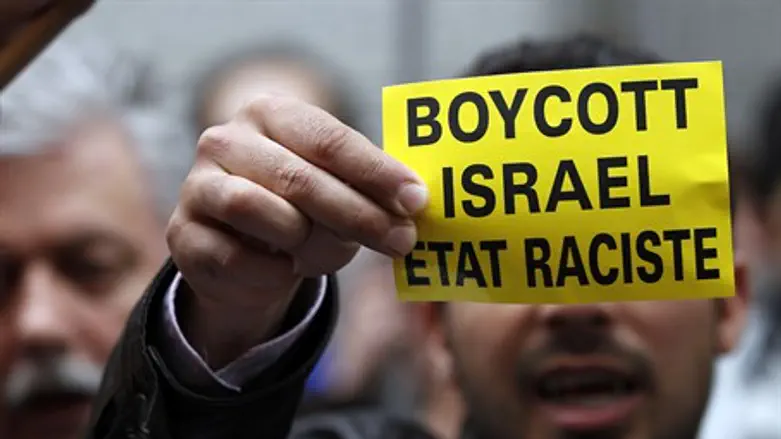
The Anti-Defamation League (ADL) expressed sharp criticism against the European Union on Sunday, following a wave of directives from France, Italy, and Spain advising citizens abroad to prevent conducting business in Judea and Samaria.
“At a period when Israel is confronting heightened threats from Hamas and other terrorist elements, the search for the abducted Israeli teens, ongoing rocket fire from Gaza, and intensifying regional instability, it is disappointing that European governments have once again unduly honed in on settlements,” Abraham H. Foxman, ADL National Director, stated Sunday.
“Not only is the timing of this action out of step with the recent security developments, but the suggestion that conducting business with private West Bank-based [Judea and Samaria - ed.] Israeli companies could violate human rights takes the European position on settlements to a new extreme.”
The ADL also noted that the statement did not focus on the Hamas-Fatah unity pact, nor on recent terror activity in both Gaza and the Palestinian Authority (PA).
"To be seen as a constructive party in the Israeli-Palestinian conflict, European states must cease their unfair practice of focusing solely on Israel’s settlement activity,” Foxman continued. “The Palestinian Authority should be held responsible for its own obstructionist actions, including its direct affiliation with terrorist groups like Hamas.”
Harmful or not harmful?
All of the warnings claim that Israel's presence in the area is "unrecognized under international law," and therefore "legal and financial risks" are posed to businesses and individuals doing business with Israel in the region, either by investing, transferring money, signing contracts, purchasing land or receiving tourist services.
But at least one foreign body claimed that the statement was not intended to be harmful, but merely following the norm in the EU.
On Friday, the Spanish foreign ministry told the Spanish news agency EFE that the warning is not a "sanction" or "boycott" against Israel, but rather an effort to follow EU decisions and follow the model of England, France and Germany.
"We have no intention to harm business or cooperation with Israel in the internationally recognized borders," read the statement, indicating the 1949 Armistice lines.
The policy indeed echoes the dubious opposition of the EU to BDS. EU Ambassador to Israel Lars Faaborg-Andersen stated to Arutz Sheva earlier this year that while the EU "does not support" boycotts against Israel, it does prevent taxpayers' money from being spent in parts of Israel.
"Let me make it 100% clear: the EU is against the so-called 'BDS' - Boycott, Divestment, and Sanctions - and we are against any attempts to isolate Israel," he insisted. "What we have done is we have implemented our policy when it comes to settlements, which is a policy of Disengagement from settlements."
The Israeli Foreign Ministry has apparently agreed that the policy is legitimate, declining to take formal action over the issue despite the fact that the 2012 Levy Report found that Israel's presence in Judea and Samaria is completely legal according to international law.
"This shows that Europe does not have a flattering view to settlements, but the statement itself is very limited, and there will be no penalties [over them]," a foreign ministry official said Friday.